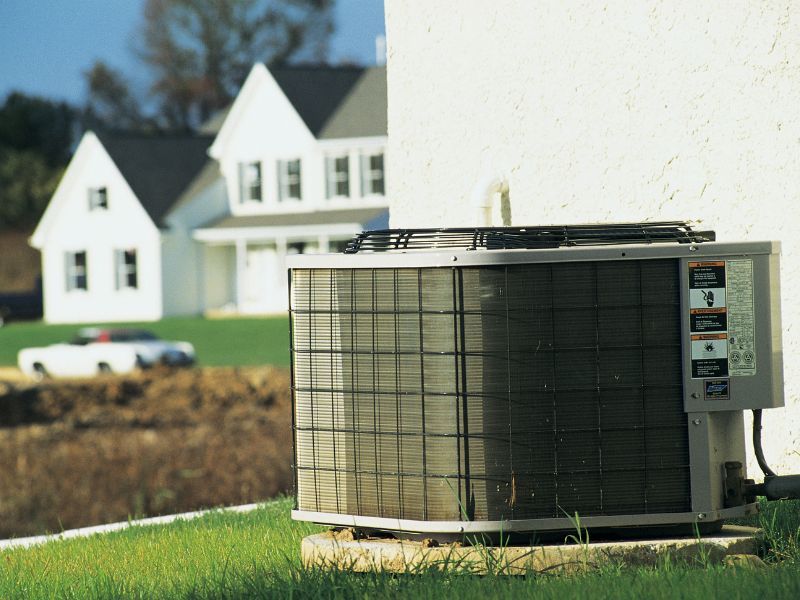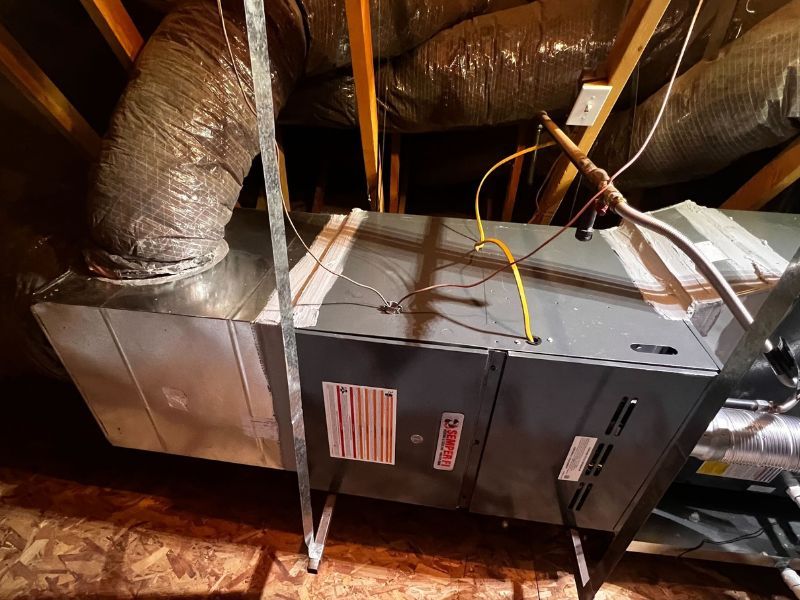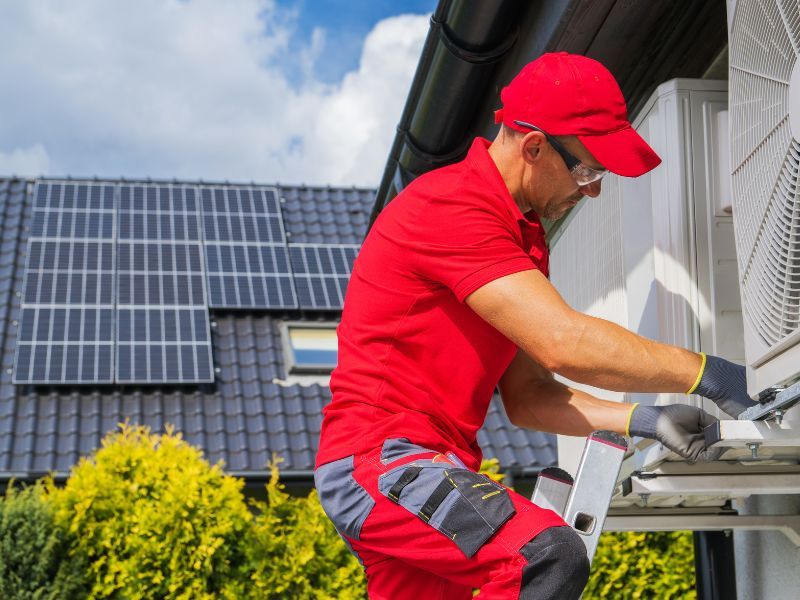Why Is Hvac Labor So Expensive?
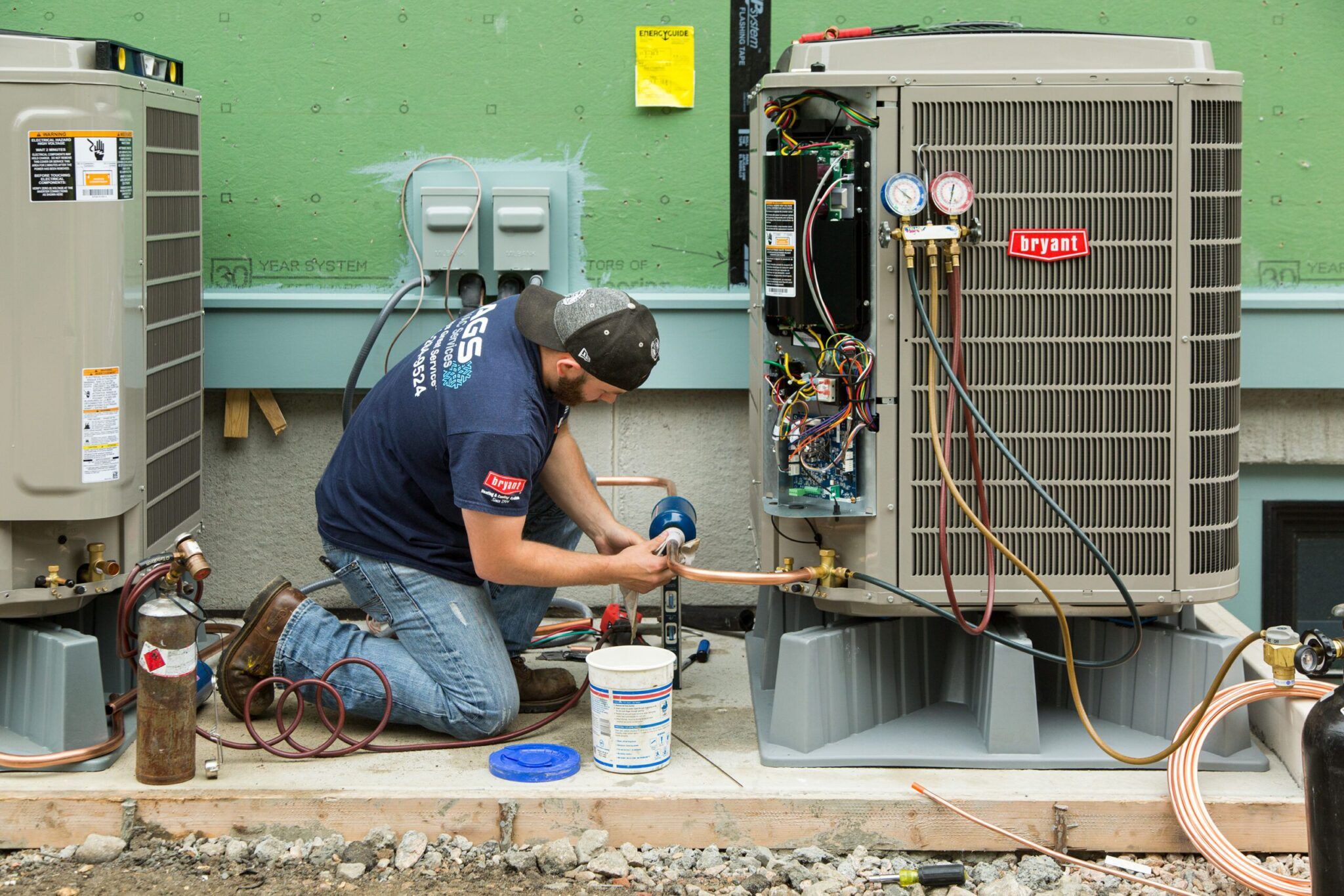
Life without air conditioning and heating is like throwing a party in the Sahara desert – it’s simply not pleasant. We rely on HVAC systems to keep us comfortable, but why can they be so expensive? Many of us are left scratching our heads when we see the price tag for labor associated with these systems. But what are some of the reasons behind this costly labor? Let’s take a closer look at why HVAC labor can often cost an arm and a leg.
The first reason that HVAC technicians charge more than your average Joe is because of their specialized knowledge and expertise. These professionals must possess years of experience working with different types of equipment, as well as understand how to troubleshoot any potential problems that may arise. They also have to stay up-to-date on safety regulations in order to ensure that all work is done safely and efficiently. All this requires time and money spent by the technician, which adds up over time, leading to higher prices for their services.
Finally, installation costs will vary depending on where you live due to local building codes and other factors such as weather conditions or terrain. For instance, if there is extreme cold weather or mountainous terrain in your area then extra precautions must be taken during installation which could add additional expenses onto the bill. It’s important to consider these variables before hiring an HVAC professional as they can significantly affect overall costs down the line.
To sum things up, there are several factors that contribute towards making HVAC labor expensive ranging from specialist expertise needed by technicians through to location specific considerations when installing new systems. In this article we’ll explore each factor in turn in order to gain a better understanding as to why these skilled laborers can command such high fees for their services
Get A Fully-Installed HVAC Price Online
So Where Do The Costs Come From?
Imagine a world where you would be blind to the most important work in your home. You wouldn’t know what is happening hidden behind walls, underneath floors and within furnaces – all the things that allow us to live safe and comfortably. Well, it’s clear why we need HVAC labor: for our safety and well-being.
But how much does this service cost? That’s the million dollar question! The costs of HVAC labor can vary greatly depending on several factors, but one thing is certain – they are not cheap. So, where do these expenses come from? Let us take a deeper look into this issue.
The price of an HVAC job depends upon many elements such as materials needed, complexity of the project, size of the area or system being serviced, type of equipment used etc. All these determine how long the installation will take and thus affect the total cost incurred by customers. Additionally, other associated fees like permit charges may also add up to the final bill. Furthermore, specialized tools required for repairs may have their own set of expenses too.
It is evident that there are multiple components which contribute towards escalating prices related to HVAC labor services. As with any purchase decision involving large sums of money, understanding each factor before making a commitment helps ensure both customer satisfaction and financial value for money spent.
Factors Affecting The Cost Of Hvac Labor
When it comes to home comfort, HVAC labor can be a hefty expenditure. But why is that? What makes this type of work so pricey?
There are several aspects that come into play when assessing the cost of HVAC labor. It’s important for homeowners to understand what these factors are in order to make the most informed decision possible about their service provider and budget. Let’s take a closer look at some of the key elements that contribute to higher costs associated with HVAC labor.
First off, there’s the issue of supply and demand – just like any other industry or product on the market today, prices increase as demand rises above supply. When there are more people who need services than qualified technicians available, prices tend to climb. This is especially true in areas where skilled professionals are few and far between; they often have no choice but to charge top dollar for their expertise and experience. In addition, due to advancements in technology and equipment, keeping up with current certifications requires continual additional training from technicians, which adds an extra layer of expense for consumers.
Lastly, hidden fees such as insurance coverage and overhead costs also factor into how much you pay for your HVAC technician’s services. All companies must carry certain levels of liability insurance in case something goes wrong during installation or repair jobs; those premiums get passed along directly to customers through higher rates. Likewise, overhead expenses like rent/mortgage payments, utilities bills, fuel charges etc., all add up over time and eventually end up being reflected in invoices sent out by contractors.
So while making sure your home is comfortable year-round may not always come cheap, having insight into the various influencing factors behind rising HVAC labor costs can help you better prepare yourself financially before taking on any major projects or repairs down the road.
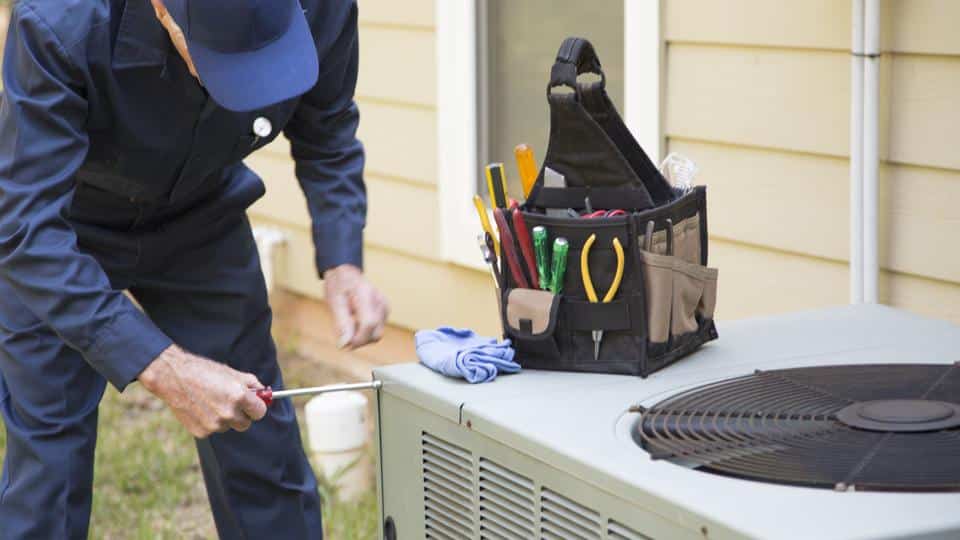
Get A Fully-Installed HVAC Price Online
Supply & Demand For Hvac Professionals
Imagine a world where no one has the skills or knowledge to fix your air conditioning system. In this world, you would be stuck in the heat and humidity of summer with no relief for days on end. That is what it was like before HVAC professionals arrived on the scene – an age when homes remained hot, stuffy and uncomfortable.
Today, however, HVAC professionals are in high demand as they can provide comfort and peace of mind that comes with having working cooling systems at home. But why is their labor so expensive? Supply and demand offer some clues as to why getting quality HVAC services come at such a steep price tag.
For starters, there’s simply not enough qualified technicians available to meet customer demands. This lack of supply drives up the cost of service due to basic economics – prices go up when fewer people are offering services than those who need them. Furthermore, many states require additional certifications beyond a traditional license which means more time invested in training by contractors leading to higher costs for customers.
Another factor driving up costs relates directly to advancements in technology within the industry; these technological advances have resulted in increased complexity of modern systems requiring greater skill levels from technicians when servicing them resulting in longer job times (and thus higher bills).
It’s clear then that cost associated with hiring an HVAC professional often reflects both limited availability combined with necessary expertise required for complex repairs and installations in today’s climate control systems – making it increasingly difficult for consumers to find affordable solutions without sacrificing quality workmanship. As we move forward into an era of highly advanced heating and cooling systems, finding reliable yet budget-friendly options will become even more challenging unless new measures are taken to increase access to qualified laborers while keeping rates reasonable.
Increased Complexity Of Modern Hvac Systems
“Time is money,” and this adage certainly applies to the increased complexity of modern HVAC systems. As technology has advanced, so too have the materials used in HVAC installation and repair, making it more expensive for technicians to provide their services. This heightened complexity requires specialized knowledge and tooling that adds up quickly on a labor bill.
The cost of labor isn’t just limited to acquiring the necessary skills and equipment needed for an efficient job. Additionally, there’s a supply & demand factor at play as well; with fewer certified professionals available, those who are qualified often charge premium rates due their expertise.
Safety requirements also drive up costs associated with HVAC installations. The National Fire Protection Association (NFPA) provides guidelines that must be followed by all technicians or contractors performing work related to heating, ventilation and air conditioning systems. For instance, one such guideline states that any new system must include safety controls such as flame sensors or pressure switches which will shut off gas flow if something goes wrong during operation.
These additional components require extra time when installing or servicing a unit but also help ensure its safe operation over the long run – something everyone wants when dealing with potential fire hazards like natural gas lines! All these considerations add up to make HVAC labor more expensive than ever before, leaving homeowners feeling pinched in both pocketbook and patience. Moving forward then, it is essential to select experienced professionals familiar with local codes and regulations whenever venturing into any type of renovation project involving HVAC systems. Transitioning into safety requirements for HVAC installations should be easier now that we’ve explored why labor can become costly…

Safety Requirements For Hvac Installations
Installing a HVAC system is like assembling a complex puzzle. All the pieces must fit together perfectly, and any wrong move can lead to disaster. That’s why safety requirements for HVAC installations are so important – even one small mistake could compromise the entire system’s performance or efficiency.
The complexity of modern HVAC systems means that installation requires many different skillsets and techniques; from electrical work to soldering connections, it takes an experienced professional to ensure that everything is done correctly and safely. Regulations such as electrical codes, local building codes, manufacturer-specific guidelines, and more all need to be taken into account during the process in order to prevent any issues down the line. This adds up quickly when labor costs come into play, resulting in expensive installation fees which some homeowners may find difficult to afford.
It’s not just about money either – safety should always remain at the forefront of everyone’s minds. Poorly installed equipment can cause serious damage if left unchecked: carbon monoxide poisoning due to faulty exhaust systems; fire hazards caused by incorrect wiring; water damage from improper sealing – these are only some of the possible scenarios that could occur if proper safety protocols aren’t followed during installation.
That’s why having knowledgeable professionals certified and licensed in their field is essential when installing a new HVAC system; they have received specialized training on how to properly install each part according to industry standards and best practices, helping keep your home safe while also preventing costly repairs down the road. And with this comes higher labor charges – but peace of mind is worth its weight in gold. Moving forward, we’ll look into certification & licensing requirements for HVAC professionals…
Certification & Licensing Requirements For Hvac Professionals
The installation of HVAC systems involves a large number of safety considerations, which is why the certification and licensing requirements for working on such systems are so stringent. Professional HVAC technicians must complete rigorous training and meet all relevant codes and regulations to obtain their licenses. This means that only those who have invested significant time and money into obtaining these qualifications can perform work on HVAC systems.
This isn’t to say that any person or company with a valid license is necessarily qualified to install an HVAC system correctly – they still need to demonstrate knowledge of the appropriate local laws as well as having experience in installing similar systems safely and efficiently. But it does mean that anyone without a proper license should be avoided at all costs, as there’s no guarantee that the job will be done properly if they’re not certified professionals.
Hiring licensed technicians also provides customers with peace of mind; knowing that someone has taken the necessary steps to ensure safety means you don’t have to worry about whether your new system will cause problems down the line. Allowing inexperienced workers to handle potentially dangerous tasks could lead to serious accidents, damage property, or worse – put people’s lives in danger. That’s why it pays off for both parties when experienced professionals take care of things from start to finish.
Given the complexity of modern HVAC systems, investing in professionally-licensed contractors is often worth it – even if it may come at a higher cost than hiring unqualified personnel. It’s important for consumers to weigh up the risks versus rewards before making any decisions regarding who handles their next project. With this insight in place, let’s move onto exploring what kind of tools and equipment are needed for successful HVAC jobs – and how much they might set back those looking to do them themselves…
Cost Of Tools & Equipment Needed For Hvac Work
When it comes to doing quality HVAC work, the right tools and equipment are an absolute must. Without these items, technicians won’t be able to complete their jobs in a safe and efficient manner. But unfortunately, buying all of this stuff can get pretty expensive.
For starters, there’s the cost of basic hand-tools such as screwdrivers, pliers, wrenches and hammers; which average around $1-$2 per tool. Then you have larger power tools like drill/drivers that range anywhere from $50 – $200 depending on brand and features. And don’t forget specialty items like pipe benders or soldering kits for copper piping – those will easily set you back several hundred dollars each.
It doesn’t end there either. In order to properly diagnose issues within your system, many technicians also need diagnostic hardware such as multi-meters or digital thermometers to accurately measure temperatures throughout the air ducts. These devices usually run between $150 -$300 apiece; but they’re essential if you want accurate readings when experimenting with different settings or calibrations during installation or repairs.
The bottom line is: investing in quality tools & equipment is absolutely critical for any professional working in HVAC — regardless of whether they’re repairing existing systems or installing new ones altogether. So before hiring a technician, make sure they have the right gear for the job…otherwise it could mean costly delays down the road due to improper maintenance or calibration. Transitioning now into discussing ‘high quality materials & parts used in hvac work’, let’s look at what goes into actually making up your heating and cooling system…
High Quality Materials & Parts Used In Hvac Work
Using high quality materials and parts for HVAC work is essential, as it can determine the success of a project. Without the right supplies, an entire system could be rendered useless after installation. Fortunately, there are many reliable suppliers to choose from when selecting components for repairs or new installations. Let’s take a closer look at why these items cost more than inferior alternatives.
To begin with, higher priced parts often come with longer warranties and greater durability. This ensures that they will last much longer than cheaper products, saving money in the long run due to fewer replacements being needed over time. Additionally, top-tier manufacturers use superior production techniques which increase safety standards while upholding their good reputations. Here are some of the benefits:
- Quality:
- Manufacturers must meet certain criteria to ensure the highest standards of product performance and reliability;
- Suppliers provide rigorous testing procedures prior to sale;
- Parts have built-in safeguards against potential hazards such as electrical faults or gas leaks.
- Durability:
- Materials are designed to withstand extreme temperatures;
- Structural integrity remains intact even under heavy stress;
- Components resist corrosion better than lower grade options.
- Warranty:
- Longer warranty terms mean peace of mind when investing in expensive equipment; to Quick response times from customer service if something goes wrong; to Full replacement coverage available on select models within specified periods of time.
The costs associated with sourcing high quality materials and parts may be hefty initially but they pay off in spades down the road thanks to reduced maintenance fees and improved energy efficiency ratings over extended periods of usage. Therefore, despite increased upfront expenses one should always consider using top tier components whenever possible – not only does this reduce operational risk but also increases customer satisfaction levels overall.
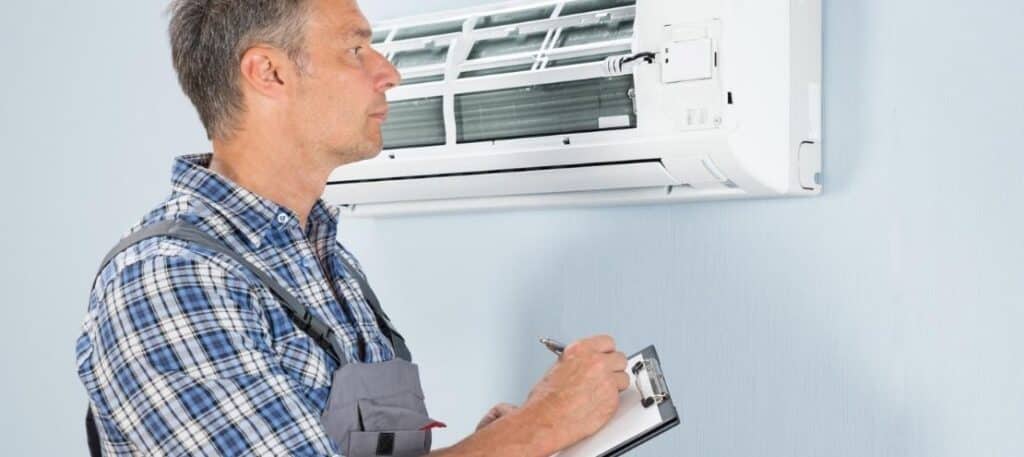
Get A Fully-Installed HVAC Price Online
Insufficiently Trained Hvac Professionals
Picture a wobbly ladder swaying back and forth, two stories up in the air. A figure stands atop its topmost rung, attempting to attach something that looks like part of an air conditioning unit. Is this person trained? Are they qualified? When it comes to HVAC professionals and their expensive labor costs, the answer is important:
Insufficiently trained HVAC professionals are partly responsible for why labor costs so much. While some workers may have gotten basic training from a college or trade school program, many may not be well-equipped with the knowledge required for more complex repairs. This lack of expert understanding can lead to mistakes on the job—and costly repair bills for customers down the line.
To really understand how this plays into our wallets, let’s consider what goes into a successful HVAC project:
- A comprehensive inspection of all components
- Replacement parts that meet quality standards
- Professional installation by experienced personnel
Without any one of these critical elements, you’re at risk of ending up with an unreliable system—not only wasting money but also leaving your home vulnerable to poor indoor air quality and other potential hazards. That’s why businesses need to invest in properly training their staff and certifying them as qualified technicians before sending them out on jobsites. It might cost a bit more upfront—but it could save major headaches (and dollars) later on.
It’s clear that insurance & bonding play a role too…
Cost Of Insurance & Bonding For Hvac Work
The cost of insurance and bonding for HVAC work can be a daunting expense. It’s something that is often overlooked when considering how much it costs to hire an HVAC professional, but this essential component of the process can’t be ignored. The fact is that these measures are designed to protect all parties involved in the transaction – both worker and customer alike.
Insurance and bonding provide a critical layer of security while ensuring that everyone gets what they’re expecting from the job. While these services may add onto the overall price tag, they offer peace of mind knowing that any potential issues down the road will be taken care of quickly and efficiently.
It’s also important to remember that having a licensed technician handle your HVAC repairs or installations comes with an added sense of assurance as well. These professionals have gone through extensive training and evaluation before being certified in their craft, which means you’ll be getting service from someone who knows exactly what they’re doing – every step of the way.
All things considered, investing in insurance and bonding for your HVAC project might seem like extra money spent upfront, but it pays off in spades by providing guaranteed protection against future complications or mishaps. This creates a safe environment for customers to do business without worry about anything going wrong along the way. Moving forward into training & continuing education expenses for HVAC professionals, let’s explore further why those too need consideration when looking at labor costs…
Expense Of Training & Continuing Education For Hvac Professionals
The journey of an HVAC professional is a long and arduous one, like a mountain climber scaling treacherous heights. It requires dedication, hard work and the willingness to never give up. But even with these qualities in tow this journey does not come cheaply. Training and continuing education for HVAC professionals are costly investments that require extensive time commitments from those pursuing such paths.
The cost associated with learning the skills necessary to become an expert can range from hundreds to thousands of dollars depending on the level of expertise desired by the individual worker or company. Apprenticeships are common among entry-level technicians who need hands-on experience before they can get certified; while more advanced courses may include study materials, textbooks and online classes that must be completed in order to pass examinations or receive certifications. All of these expenses add up quickly over time, making it difficult for many people to enter into this field without financial assistance.
In addition to paying tuition fees, there are other costs involved when obtaining certification as an HVAC professional which include registration and examination fees along with any applicable taxes needed in order to complete the process successfully. And let’s not forget about insurance policies either – some states demand that workers carry specific types of coverage for their profession in order to remain legally compliant and protect themselves financially against potential liability issues later on down the line.
All together, these expenses make it clear why hvac labor is so expensive – because it takes both money and time for individuals entering this industry to gain the knowledge necessary for success within its walls. With every step taken towards becoming a skilled technician also comes additional costs as well as opportunities which will shape how future projects are completed on behalf of customers seeking top quality service solutions at reasonable rates.
Time Required To Complete Hvac Projects
Admittedly, it may sound counter-intuitive to think that the time required to complete HVAC projects is an expensive factor. After all, isn’t more time typically associated with lower costs? However, when you look a bit deeper into this topic, the time involved in completing these types of jobs can add up quickly and become quite costly. Here are four ways that time impacts HVAC labor cost:
- The complexity of each job often requires multiple visits by a trained professional which adds hours on to the project;
- Specialized equipment and tools must be used for most tasks which require additional setup and tear down times;
- If parts need to be ordered or custom made, there will be delays while they are being delivered;
- When safety protocols come into play, such as working with gas lines or high voltage wiring systems, extra precautions must be taken for both the technician’s protection and yours.
These factors combine to create longer “on the clock” work hours than one would normally expect from any given task. While this means higher payouts for technicians due to their expertise and certification requirements, it also translates directly into increased out-of-pocket expenses for consumers. Fortunately, proper maintenance can help keep these costs at bay over time. So before your next repair is needed, consider investing some money upfront into regular preventive measures like duct cleaning and filter replacements – it could save you thousands in the long run!
Hvac Maintenance & Repair Costs
It’s no secret that HVAC maintenance and repair costs can be expensive. But why? Is it because of the amount of time required to complete projects, or is there something else at play? Let’s investigate further.
One explanation could be attributed to the complexity of modern HVAC systems. As technology advances, so do the components within these systems – many of which require specialized knowledge and skillset to work on them safely and correctly. It also takes a significant amount of time for an expert technician to diagnose potential issues with these complex machines; this adds up in terms of labor costs.
Then there are other factors besides the expertise needed that contribute to increased cost such as safety regulations, licensing fees, insurance premiums, and equipment charges associated with purchasing parts from reliable sources. Additionally, some contractors may charge higher rates due to their reputation for providing quality service over cheaper alternatives. All this culminates in high prices for consumers seeking professional help with their HVAC repairs and maintenance needs.
The reality is that when you invest in professional HVAC services, you’re paying for more than just labor costs: you’re paying for peace-of-mind knowing your system has been properly serviced by trustworthy technicians who have years of experience working on similar systems. Moving forward into the next section about ‘the benefits of professional hvac labor’, we’ll explore how these companies can provide added value while saving homeowners money in the long run.
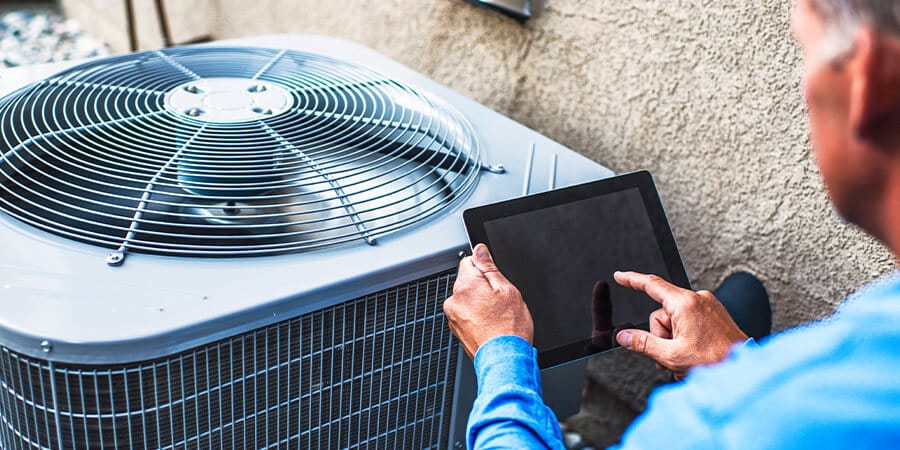
The Benefits Of Professional Hvac Labor
You can’t put a price on peace of mind, and that’s what you get when you invest in professional HVAC labor. Sure, it might be more expensive than doing the repair yourself or hiring an amateur contractor, but there are several advantages to having a qualified technician take care of your home’s heating and cooling needs. Here are some of the most important benefits:
- Professionalism: A certified HVAC expert has undergone rigorous training and testing to become licensed. This means they have the knowledge needed to correctly diagnose and address any issues with your system quickly and efficiently.
- Safety: Working with electricity is no joke, so it’s best left to someone who knows what they’re doing. With a professional at the helm, you don’t need to worry about putting anyone in danger—including yourself—while getting your furnace fixed up right.
- Warranty coverage: Many manufacturers will not honor product warranties unless repairs are done by a trained technician. That means if something breaks down soon after installation due to improper workmanship, you may be able to get it replaced without paying additional costs out-of-pocket.
- Long-term savings: Professionals know their way around HVAC systems better than anyone else; as such, they have access to parts that nonspecialists do not, which could result in significant savings over time for replacement items compared to buying generic components from a store. Furthermore, since technicians understand how each part interacts with one another, they can make sure everything works together seamlessly for maximum energy efficiency and performance—saving you money on utility bills too!
By investing in quality professional HVAC labor now rather than attempting DIY fixes or working with unqualified contractors later on, you’ll enjoy all these plus many other invaluable perks while keeping yourself and those around safe from potential hazards associated with mishandling electrical equipment. Now let’s look at some strategies for reducing hvac labor costs.
Strategies For Reducing Hvac Labor Costs
Maintaining a comfortable indoor environment requires an investment of time and money. Your HVAC system is no exception, especially when it comes to labor costs. Fortunately, strategies exist that can help you reduce the amount you pay for professional HVAC services.
One way to save money on HVAC labor is to be proactive with your maintenance schedule. Regularly scheduled check-ups are essential in order to ensure that your unit runs at peak performance levels while avoiding costly breakdowns down the line. If any problems arise during these inspections, they can often be taken care of quickly and cost effectively rather than waiting until more serious issues occur later on.
Another approach is to shop around for competitive rates from different contractors or technicians. With so many available options out there, doing research can be beneficial in finding someone who fits both your budget and needs as far as qualifications go. Additionally, taking advantage of discounts or specials offered by companies may also lower labor fees if applicable.
Finally, it’s important to remember that although hvac systems may seem complex, some basic troubleshooting tasks such as changing filters or cleaning coils can be done yourself without having to hire someone else for assistance. It’s always best practice however, to consult with a qualified technician before performing any work on your own just in case safety protocols need to be followed or parts require replacement due to excessive wear and tear over time.
Being mindful of how much you spend on HVAC labor doesn’t have to break the bank; armed with knowledge and preparation one can take steps towards reducing their costs while still keeping their home climate controlled in a safe manner all year round!
Get A Fully-Installed HVAC Price Online
Frequently Asked Questions
What Type Of Insurance Is Required For Hvac Work?
The cost of HVAC labor can seem intimidating, but it’s a necessary investment in the protection and health of your home. With this in mind, it’s important to understand what type of insurance is required for any HVAC work.
Insurance coverage protects both you as the customer and the contractor who will be doing the job. It safeguards against unexpected costs due to property damage or injury that might occur during installation or repairs. Generally speaking, businesses offering HVAC services should have general liability insurance which covers damages caused by their employees onsite and product liability insurance which covers defects in products supplied by them.
Homeowners should also consider requiring proof of workers’ compensation insurance from contractors since this ensures they are covered if an employee gets injured at their home while working on their system. In addition, many states require contractors to carry bonding insurance which guarantees completion of contracted jobs—particularly those involving large sums of money.
Having all these types of coverages helps create peace-of-mind knowing everyone involved is protected against potential hazards associated with installing and repairing HVAC systems. This security allows customers to focus more on getting quality service than worrying about what could go wrong during a repair job – giving you one less thing to worry about!
How Long Does It Take To Complete A Typical Hvac Project?
HVAC projects can vary greatly in size and complexity. As such, it’s important to understand the amount of time that a given project may take to complete. While some minor tasks could be completed quickly by experienced technicians, others will require more time for planning, installation, and testing.
On average, most HVAC jobs should take between 1-5 days from start to finish. This range is dependent on the type of system being installed as well as any additional services or repairs needed along the way. The process generally involves measuring air flow, checking ductwork for leaks, connecting wiring and components, installing insulation where necessary, calibrating thermostats and other controls, running tests to ensure proper operation before finalizing the job with cleaning up all materials used.
When considering how long an HVAC job might take you need to factor in any potential delays due to parts availability or weather conditions which may affect certain aspects of the work being done outdoors. Additionally, depending on your local regulations there may be specific codes or permits required prior to beginning installation which can add extra steps into a project timeline.
Given these variables it’s best practice to communicate clearly with your contractor about expectations so they can properly plan their schedule around existing commitments while ensuring quality results within realistic timelines. After all, nobody wants surprises when it comes to getting something fixed!
TIP: Make sure you are informed about what kind of preparation needs to happen before starting your next HVAC project – this will help avoid unwanted delays down the line!
Is It Possible To Reduce The Cost Of Hvac Labor?
Did you know the average American spent over $2,000 on HVAC maintenance in 2020? While this may seem like a large investment for some, it’s important to note that labor costs can often make up a majority of these expenses. So, is it possible to reduce the cost of HVAC labor? Let’s take a closer look.
There are several ways homeowners and businesses alike can save money on their HVAC project labor costs. To start, one should consider hiring an independent contractor or company that specializes in HVAC services as they typically charge lower hourly rates than general contractors. Additionally:
- Purchasing HVAC components online can be cheaper than buying them from a local store;
- Replacing or repairing parts yourself instead of relying solely on professional help; and
- Shopping around for quotes between different contractors.
It’s also worth noting that investing in regular preventative maintenance can go a long way towards avoiding costly repairs down the road. Regular cleaning and inspections will ensure your system is running efficiently, reducing energy bills and extending its lifespan. Plus, many contractors offer discounts when multiple services are requested at once.
The key to reducing the cost of HVAC labor is doing research ahead of time and understanding all available options for getting quality work done without breaking the bank. Taking proactive steps such as shopping around for quotes, purchasing components online and even performing basic repairs yourself can add up to substantial savings in the long run.
What Are The Advantages Of Using Professional Hvac Labor?
It’s no secret that professional HVAC labor can be expensive. However, there’s a reason why it pays to use experienced pros when your home needs heating and cooling services – the advantages are undeniable. Sure, you could attempt DIY repairs or hire an unlicensed technician at a lower rate but this is not recommended as the results may not last long-term. Here are some of the key benefits for choosing expert HVAC professionals:
For starters, safety should never be overlooked when dealing with electrical wiring and gas connections in your home. Experienced HVAC technicians have been properly trained to ensure their work meets all relevant codes and regulations. This means they know how to prevent potential hazards like fires due to incorrect installation or faulty equipment. With professional help, you can rest assured knowing the job has been done right and will stand up over time.
Another benefit of working with qualified pros is their extensive knowledge base which often allows them to diagnose problems more quickly than their amateur counterparts. Thanks to years of experience on the job, these experts can accurately assess any issues you might be having with your system and provide appropriate solutions much faster than someone who isn’t well-versed in HVAC technology. Plus, many offer additional services such as maintenance inspections so that minor repairs don’t become major headaches down the road.
Finally, professional HVAC technicians come equipped with advanced tools and specialized parts needed to complete many jobs correctly without delay. In addition, most companies guarantee their workmanship meaning if something goes wrong after they leave you won’t have anything to worry about since they’ll take care of any necessary fixes free of charge – yet another good reason why using licensed labor makes sense from both a financial standpoint and peace of mind perspective.
So while spending money on reliable HVAC service may seem intimidating upfront, it ultimately saves time and hassle by ensuring a quality result every time regardless of what type of project you’re undertaking around your house or business premises.
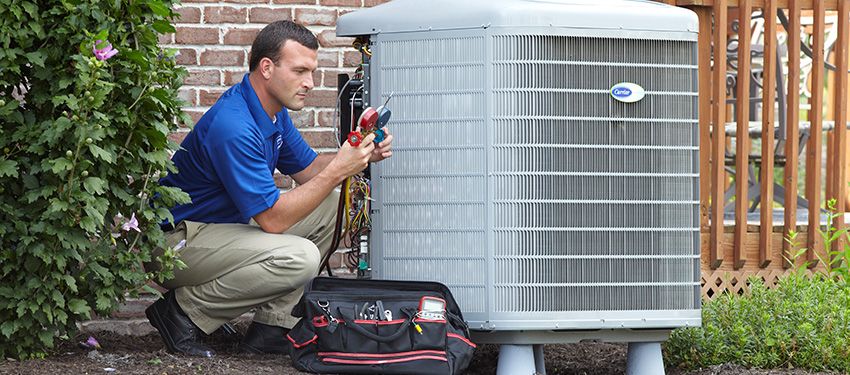
Conclusion
In conclusion, the cost of HVAC labor can be expensive but is worth it when considering the safety and quality assurance that comes with hiring a professional. It’s important to understand all of the qualifications needed to become an HVAC technician as well as what type of insurance is required for their work. By understanding this information, you’ll have peace of mind knowing your project will be done correctly and safely. Additionally, using professional HVAC labor also saves time since most projects are completed quickly due to their experience and knowledge in the field.
Therefore, if you’re looking for reliable service from experienced professionals at a fair price, then investing in certified HVAC labor may be a wise choice. Furthermore, taking into account all of the benefits associated with hiring a licensed contractor should encourage anyone who needs any kind of HVAC repair or installation services to make sure they find one that meets their exact requirements. To sum up, while there could always be some variations in pricing between contractors, choosing certified HVAC labor ensures both quality results and peace of mind – making it well worth its expense.
HVAC System Cost & HVAC Reviews
Related Pages
Categories
